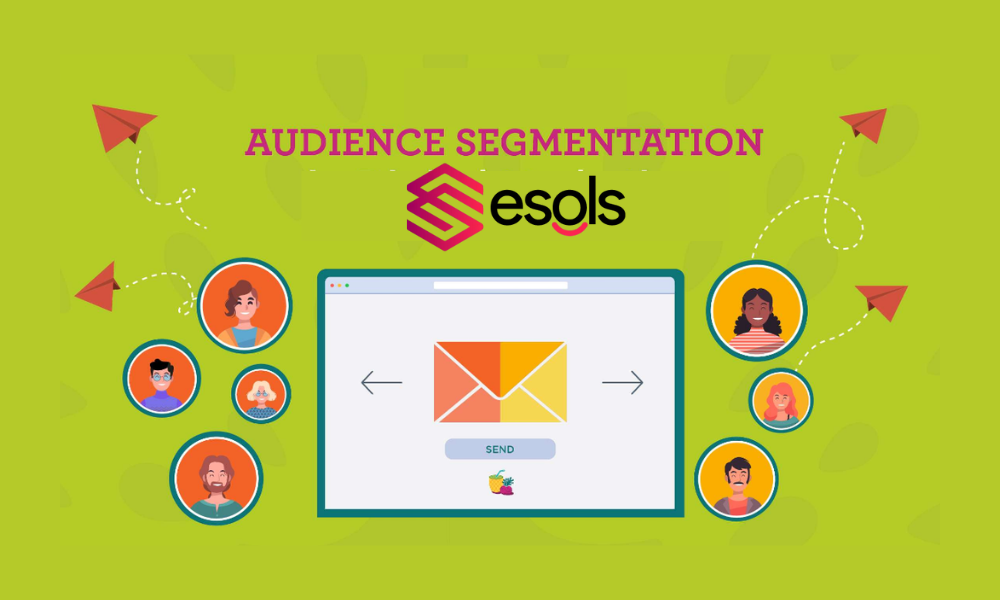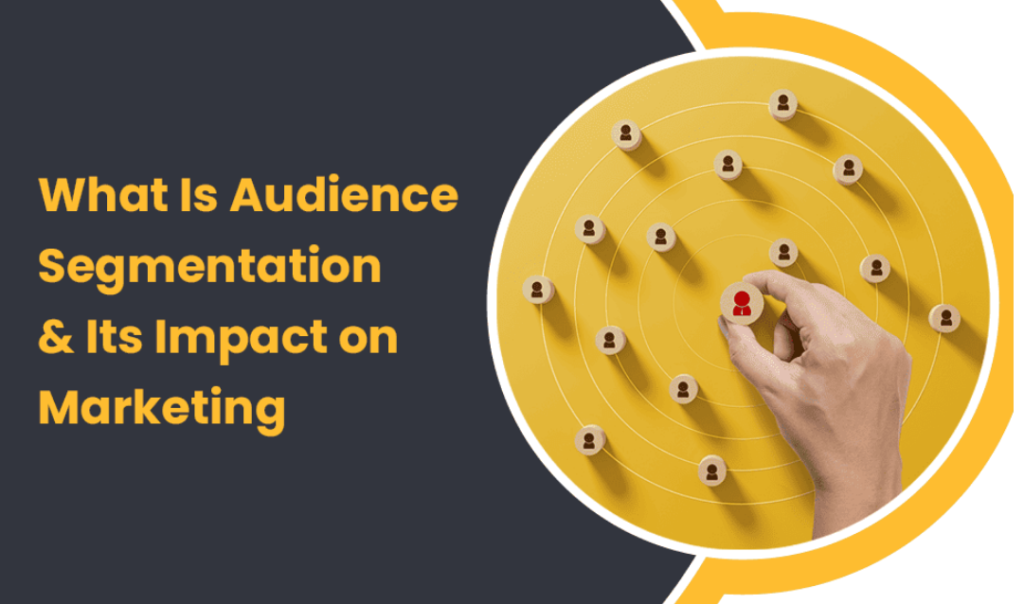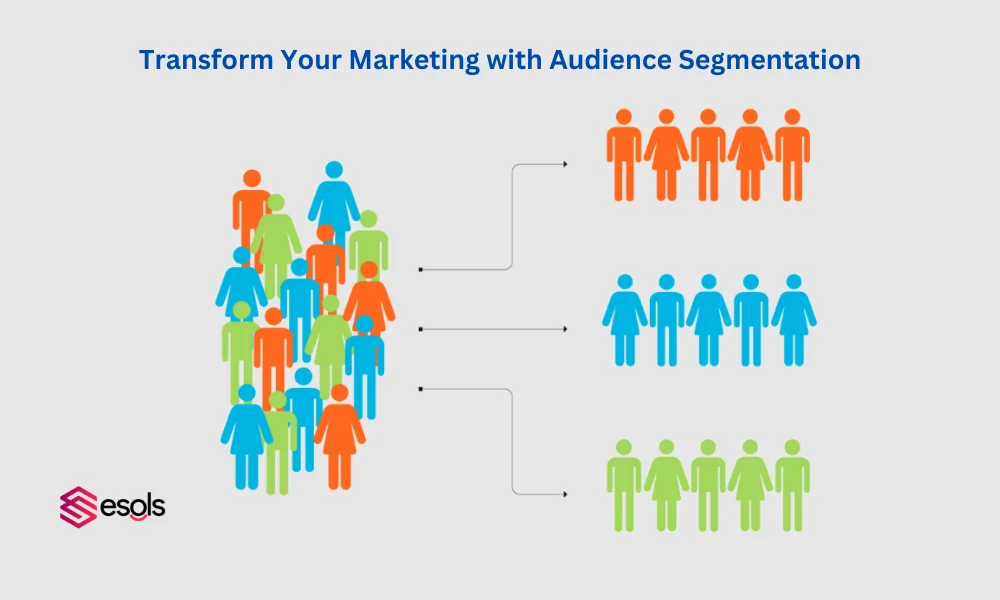In today’s competitive landscape, understanding your audience is more crucial than ever. One of the most effective strategies to achieve this is through audience segmentation. This approach allows marketers to tailor their messages, improve engagement, and ultimately drive conversions. In this blog, we will explore what audience segmentation is, its benefits, and how to implement it effectively.
Table of contents
What is Audience Segmentation?
Audience segmentation is the process of dividing your target market into distinct groups based on shared characteristics. These characteristics can include demographics, interests, behaviors, and purchasing history. By segmenting your audience, you can create more personalized marketing campaigns that resonate with each group, enhancing their overall experience with your brand.

Why is Audience Segmentation Important?
Improved Targeting
When you segment your audience, you can tailor your marketing efforts to meet the specific needs and preferences of each group. This targeted approach increases the likelihood of your messages resonating with recipients, leading to higher engagement and conversion rates.
Enhanced Customer Experience
Personalized marketing strategies result in a better customer experience. When customers feel understood and valued, they are more likely to engage with your brand. This can lead to increased customer loyalty and repeat purchases.

Increased ROI
By focusing your marketing efforts on specific segments, you can allocate your resources more effectively. This targeted approach often results in a higher return on investment (ROI) since you are not wasting resources on broad campaigns that may not resonate with your entire audience.
Competitive Advantage
In a crowded marketplace, having a clear understanding of your audience sets you apart from competitors. By leveraging audience segmentation, you can develop unique strategies that cater to the specific needs of your segments, making your brand more appealing.
Data-Driven Insights
Audience segmentation allows you to gather and analyze data more effectively. Understanding the behaviors and preferences of different segments helps you make informed decisions, leading to more effective marketing strategies.
Flexibility and Adaptability
Segmentation enables your marketing team to be more flexible and adaptable. As market trends and consumer behaviors evolve, you can adjust your strategies and campaigns based on the latest data. This agility allows you to stay relevant and competitive in a fast-paced environment.
Improved Communication
By understanding the unique characteristics of each segment, you can communicate with them more effectively. Tailoring your language, tone, and messaging to fit the preferences of each group fosters stronger connections and enhances engagement.
How to Implement Audience Segmentation
Implementing audience segmentation involves several key steps:
Audience segmentation remains a key part of your marketing strategy. Therefore, ignoring it leads to losing an opportunity to grab a targeted audience.
Define Your Goals
Start by defining your marketing objectives. Are you aiming to increase brand awareness, drive sales, or enhance customer engagement? Clear goals will guide your segmentation process.
Gather Data
Collect data from various sources, including website analytics, social media insights, and customer surveys. This data will help you identify common characteristics among your audience.
Segment Your Audience
Based on the data collected, divide your audience into segments. Common segmentation criteria include:
- Demographics: Age, gender, income level, education, etc.
- Geographics: Location-based targeting.
- Psychographics: Interests, values, lifestyles, etc.
- Behavioral: Purchase history, engagement level, brand loyalty, etc.
Create Buyer Personas
Develop detailed buyer personas for each segment. A buyer persona is a semi-fictional representation of your ideal customer within a segment, including their motivations, challenges, and preferences.
Tailor Your Marketing Strategies
Customize your marketing messages and campaigns for each segment. This may involve using different channels, content types, and messaging styles that resonate with each audience group.
Measure and Optimize
Regularly track the performance of your segmented campaigns. Use analytics tools to measure engagement, conversion rates, and overall effectiveness. Based on the insights gathered, optimize your strategies for better results.
Conclusion
Audience segmentation is a transformative strategy that can significantly enhance your marketing efforts. By understanding the unique needs and preferences of different audience segments, you can create personalized campaigns that drive engagement and boost conversions. Embrace audience segmentation today to stay ahead in the competitive landscape and foster lasting customer relationships.
Read more : Building Trust Through Cookieless Marketing Strategies
FAQs
Audience segmentation is the process of dividing your target market into distinct groups based on shared characteristics to tailor marketing efforts effectively.
It enhances targeting, improves customer experience, increases ROI, provides a competitive advantage, and offers data-driven insights.
Common criteria include demographics, geographics, psychographics, and behavioral factors.
Use analytics tools to track engagement, conversion rates, and overall campaign performance, then optimize strategies based on the data collected.
Yes, by providing personalized experiences that resonate with different segments, you can enhance customer loyalty and retention.

Smith
Welcome to my blog! As a digital marketing expert with over 15 years of experience, I’ve witnessed the transformative power of search engine optimization from the very beginning of my career. In this blog series, I’ll delve into the crucial role SEO and marketing play in the success of small businesses. Join me on this journey to uncover how leveraging data-driven insights and innovative SEO techniques can propel your small business to new heights, attract a broader audience, and drive sustainable growth in the digital age. Whether you’re a seasoned entrepreneur or just starting out, you’ll find valuable insights and practical tips to enhance your digital marketing strategies.


